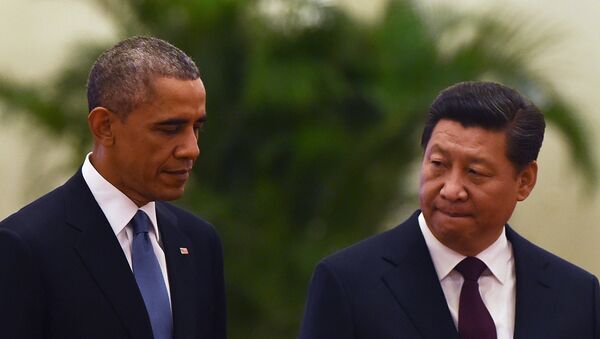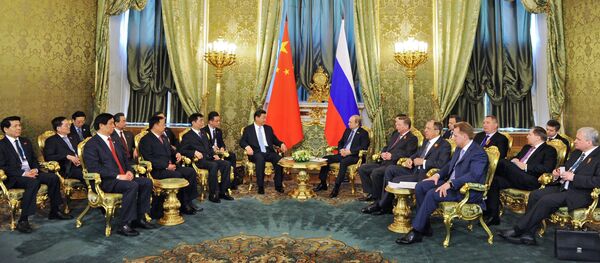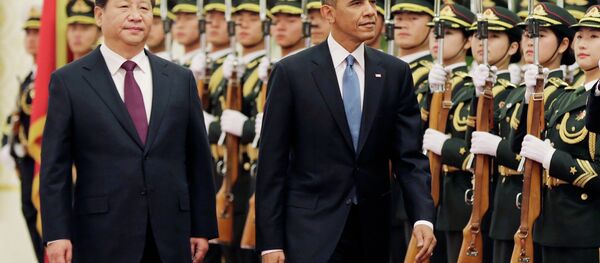Washington's responses to the recently aggravated territorial disputes in the South China Sea as well as to the rapid growth of the China-led Asian Infrastructure Investment Bank (AIIB) echo Cold War-era rhetoric, noted Rebecca Liao, a Silicon Valley-based writer and China analyst.
"Alas, our clumsy statecraft these last few months in the Asia-Pacific betrays a deeply antiquated and dangerous misunderstanding of the Middle Kingdom and how to deal with its growing influence. Despite its protestations otherwise, the United States has been clearly trying to establish boundaries on China's power in the Asia-Pacific [region]. For 'the world today,' that approach encourages aggression with few benefits," the analyst underscores.
So far, Washington has boosted its relationship with Tokyo, China's longstanding political rival, as well as with India and a number of Southeast Asian countries.
Furthermore, the United States has escalated its surveillance of the disputed waters of the South China Sea, prompting China to accuse Washington of territorial incursion.
In addition, the United States found itself in an awkward position when most of its allies joined the China-led AIIB, regardless of Washington's vocal displeasure. While the US-influenced International Monetary Fund (IMF) and World Bank were making petty efforts to save face, prominent American-Chinese experts stated that Washington would have been better off welcoming and joining the AIIB instead of opposing it and thus far cutting its own throat.
"The instinct to contain a fast-growing rival for global influence drove US action in each of these cases. This strategy is a remnant of Cold-War thinking, in which relations between major world powers were neatly reduced to a zero-sum game between good and evil," the analyst emphasized.
"Given China's rise and our relationship with them, the United States cannot be effective in the Asia-Pacific [region] by leading from the front. We cannot approach the region as the indispensable nation. China is extremely sensitive to any indications that America is gathering a team of allies in Asia, believing that we are doing so at their expense," Liao remarked.
Washington should accept the idea that it cannot just contain China. Instead the US leadership must change their approach and seek compromise with the Asian Dragon, the analyst deems.
However, according to Liao the United States should not give up its attempts to remain "first among equals" in the Asia-Pacific region, strengthening ties with Southeast Asian nations.
Cooperation with China, on the other hand, is half the battle for a successful "Pivot to Asia," she highlighted.
"If we continue to rely on old habits, recent headlines of a looming military conflict will persist," Liao warned.





